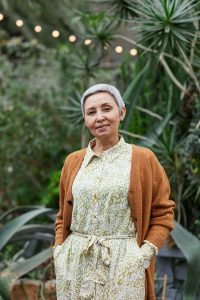Mortgage Rates Today Houston: Unlock the Secrets to the Best Rates is your go-to guide…
Reverse Mortgage Eligibility Explained: Age, Homeownership, and Primary Residence Requirements
Reverse Mortgage Eligibility
Understanding Reverse Mortgage Eligibility for an FHA (Federal Housing Administration) HECM (Home Equity Conversion Mortgage) is crucial for homeowners considering this financial option.
Let’s explore the requirements related to age, homeownership, and primary residence for reverse mortgage eligibility.

Minimum Age Requirement
To be eligible, borrowers must:
- Be at least 62 years old
- Either be the sole homeowner or have a co-borrower who also meets the age requirement
Suppose a homeowner has a younger spouse not listed on the title. In that case, the spouse may still be able to remain in the home after the borrower’s death under certain conditions. This provision is called the Non-Borrowing Spouse clause.
Homeownership and Home Equity
To qualify, the borrower must:
- Own the home outright or have a low mortgage balance.
- Have a sufficient amount of home equity to secure the loan. The loan amount results from the home’s value and the borrower’s age
Remember that the more equity a homeowner has, the higher the possible loan amount.
Primary Residence Requirement
The property used for a reverse mortgage must be the borrower’s primary residence::
- The borrower must live in the home for more than six months per year
- Vacation homes and investment properties are not eligible for reverse mortgages
Suppose the borrower must move out of their primary residence for over 12 months. In that case, the reverse mortgage may become due and payable.

Property Types Eligible for Reverse Mortgages
Not all property types qualify for reverse mortgages. Eligible properties include:
- Single-family homes
- 2-4 unit properties, as long as the borrower occupies one unit as their primary residence
- HUD-approved condominiums
- Manufactured homes built after June 15, 1976, and meeting specific FHA requirements
Financial Assessment and Counseling
Before obtaining a reverse mortgage, borrowers must undergo a financial assessment to ensure they can maintain their home and cover property taxes, insurance, and maintenance. Lenders may require borrowers to set aside a portion of the loan proceeds to cover these expenses, known as a Life Expectancy Set-Aside (LESA).
Additionally, borrowers must attend a counseling session with a HUD-approved counselor to thoroughly understand the reverse mortgage’s terms and conditions.
Contact Steve Silver at Silver Mortgage, 1-800-920-5720, for more information about Reverse Mortgage Eligibility in Texas or Florida.
Reverse Mortgage Eligibility at the FHA Website: https://www.hud.gov/program_offices/housing/sfh/hecm/hecmhome
© 2023 SteveSilverNow




